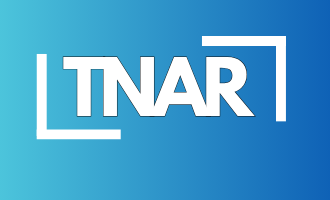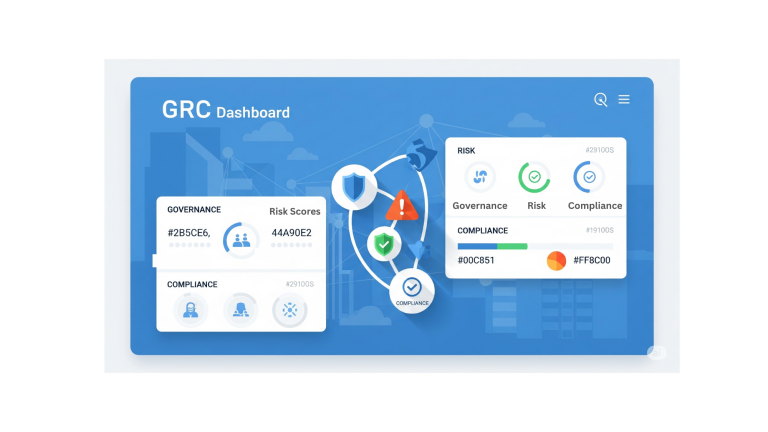Understanding the true ISO 27001 certification cost enables realistic budget planning and helps organizations avoid common financial surprises. With the global ISO 27001 certification market valued at $16.14 billion in 2024 and projected to reach $56.18 billion by 2033, demand for certification continues growing as organizations prioritize information security.
Based on industry data and pricing analysis from major certification bodies, organizations typically invest between $25,000 and $250,000 for complete ISO 27001 certification, with significant variations based on company size, complexity, and chosen implementation approach.
This comprehensive cost guide provides detailed budget breakdowns, reveals hidden expenses, and offers proven strategies to optimize your certification investment while ensuring audit success.
You may also find our ISO 27001 Certification Guide post insightful.
Cost Overview by Organization Size

Small Companies (1-50 employees): $25,000-$50,000 Total Investment
Certification Body Fees: $8,000-$15,000
- Stage 1 audit: $3,000-$5,000
- Stage 2 audit: $4,000-$7,000
- Annual surveillance audits: $2,000-$3,000 per year
- Certificate issuance and administration: $500-$1,000
Internal Resource Costs: $10,000-$20,000
- ISMS Manager time allocation: 200-400 hours at $50-75/hour
- Cross-functional team participation: 100-200 hours at $40-60/hour
- Employee training and awareness: 50-100 hours total across organization
- Documentation development and maintenance: 150-300 hours
External Consultant Fees: $5,000-$12,000
- Gap analysis and risk assessment: $3,000-$6,000
- Policy development and ISMS design: $2,000-$4,000
- Audit preparation and support: $1,000-$2,000
- (Note: Many small companies complete certification without consultants)
Technology and Infrastructure: $2,000-$8,000
- Security control implementation tools: $1,000-$4,000
- Monitoring and compliance software: $500-$2,000 annually
- Training materials and resources: $500-$1,000
- Documentation management systems: $500-$1,500
Medium Companies (51-250 employees): $50,000-$100,000 Total Investment
Certification Body Fees: $12,000-$25,000
- Stage 1 audit: $5,000-$10,000
- Stage 2 audit: $6,000-$12,000
- Annual surveillance audits: $3,000-$6,000 per year
- Multi-site audit premiums: $1,000-$3,000 per additional site
Internal Resource Costs: $20,000-$40,000
- ISMS Manager dedicated allocation: 400-800 hours at $60-80/hour
- Department head participation: 200-400 hours at $50-70/hour
- IT and security team involvement: 300-600 hours at $45-65/hour
- Organization-wide training delivery: 200-500 hours total
External Consultant Fees: $10,000-$25,000
- Comprehensive gap analysis: $5,000-$10,000
- ISMS implementation support: $4,000-$8,000
- Internal audit training and execution: $2,000-$4,000
- Specialized technical control implementation: $2,000-$6,000
Technology and Infrastructure: $8,000-$20,000
- GRC platform implementation: $5,000-$12,000
- Security control technology upgrades: $2,000-$6,000
- Monitoring and alerting systems: $1,000-$3,000 annually
- Training platforms and content licensing: $1,000-$2,000
Large Companies (250+ employees): $100,000-$250,000 Total Investment
Certification Body Fees: $20,000-$50,000
- Multi-site Stage 1 audits: $8,000-$20,000
- Complex Stage 2 audit execution: $10,000-$25,000
- Annual surveillance across multiple sites: $5,000-$15,000 per year
- Specialized industry expertise premiums: $2,000-$8,000
Internal Resource Costs: $40,000-$100,000
- Dedicated ISMS team allocation: 1,000-2,000 hours at $70-90/hour
- Cross-functional working groups: 500-1,000 hours at $60-80/hour
- Executive and management participation: 200-400 hours at $100-150/hour
- Enterprise-wide training and communication: 500-1,500 hours total
External Consultant Fees: $25,000-$75,000
- Strategic ISMS design and architecture: $10,000-$25,000
- Multi-site implementation coordination: $8,000-$20,000
- Specialized compliance and regulatory alignment: $5,000-$15,000
- Audit preparation and remediation support: $3,000-$10,000
- Change management and organizational readiness: $5,000-$15,000
Technology and Infrastructure: $15,000-$50,000
- Enterprise GRC platform deployment: $10,000-$30,000
- Advanced security control technologies: $5,000-$15,000
- Integration with existing systems: $2,000-$8,000
- Custom reporting and dashboard development: $2,000-$5,000
Hidden Costs and Additional Considerations
Travel and Logistics: $1,000-$10,000
- Auditor travel expenses for on-site visits
- Multi-site coordination and travel costs
- Training venue and accommodation expenses
- Executive and team travel for certification activities
Ongoing Maintenance Costs: $10,000-$50,000 annually
- Annual surveillance audit fees
- Internal audit execution and management
- Continuous monitoring and improvement activities
- Technology license renewals and upgrades
- Regular training updates and awareness campaigns
Opportunity Costs: $5,000-$25,000
- Business disruption during audit activities
- Resource diversion from other strategic initiatives
- Learning curve impacts on productivity
- Market timing considerations for certification completion
Cost Reduction Strategies and Optimization
Efficient Resource Utilization
- Cross-train internal team members to reduce consultant dependency
- Leverage existing compliance frameworks and documentation
- Implement phased approach to spread costs over longer timeline
- Utilize remote audit capabilities to reduce travel expenses
Technology Automation
- Invest in GRC platforms that automate evidence collection
- Use existing security tools for control implementation
- Leverage cloud-based solutions to reduce infrastructure costs
- Implement workflow automation for routine compliance tasks
Strategic Timing
- Coordinate with other compliance initiatives for shared resources
- Schedule certification during slower business periods
- Plan audit timing to optimize resource availability
- Consider group certification for multiple subsidiaries
ROI Calculation and Payback Analysis
Typical Payback Timeline: 12-24 months
Revenue Benefits:
- Enterprise sales acceleration: 15-25% faster sales cycles
- Premium pricing opportunities: 10-20% pricing premiums
- Market access expansion: New customer segments and geographies
- Partnership opportunities: Preferred vendor status with major clients
Cost Avoidance:
- Security incident reduction: Average $1.2M savings per avoided breach
- Insurance premium reductions: 20-30% cyber insurance discounts
- Regulatory fine avoidance: Compliance demonstration reduces penalties
- Audit efficiency: Streamlined customer and regulatory audits
ROI Calculation Example
Medium Company Investment: $75,000
Year 1 Benefits:
- Sales cycle acceleration: $150,000 additional revenue
- Insurance premium reduction: $15,000 savings
- Avoided security incident: $240,000 potential savings
Total Year 1 Benefit: $405,000
ROI Calculation: (405,000 – 75,000) / 75,000 = 440% ROI
Cost Comparison by Implementation Approach
DIY Implementation
Total Cost: $15,000-$35,000
- Lowest upfront cost but highest time investment
- Requires significant internal expertise
- Higher risk of audit failure and rework
- Timeline: 12-18 months
Best For:
- Organizations with existing security expertise
- Companies with dedicated compliance resources
- Budget-constrained implementations
Consultant-Supported Implementation
Total Cost: $35,000-$75,000
- Balanced cost and risk approach
- Expert guidance reduces implementation time
- Higher success rate in certification audits
- Timeline: 8-12 months
Best For:
- Most medium-sized organizations
- Companies without dedicated security teams
- Organizations seeking proven methodologies
Fully Managed Implementation
Total Cost: $50,000-$125,000
- Highest upfront cost but minimal internal effort
- Fastest path to certification
- Lowest risk of audit failure
- Timeline: 6-9 months
Best For:
- Large organizations with complex environments
- Companies with limited internal resources
- Time-sensitive certification requirements
Budget Planning Template
Phase 1: Preparation (25% of total budget)
- Gap analysis and risk assessment
- Initial policy development
- Team training and readiness
Phase 2: Implementation (50% of total budget)
- Control deployment and configuration
- Documentation development
- Employee training programs
- Internal audit execution
Phase 3: Certification (15% of total budget)
- Certification body selection
- Stage 1 and Stage 2 audits
- Finding remediation
Phase 4: Ongoing Maintenance (10% of total budget)
- Annual surveillance audits
- Continuous monitoring
- Regular training updates
Industry-Specific Cost Considerations
Healthcare Organizations
Additional Costs: $5,000-$15,000
- HIPAA alignment assessment
- Medical device security controls
- Patient data protection measures
- Regulatory compliance verification
Financial Services
Additional Costs: $10,000-$25,000
- Regulatory framework alignment
- Enhanced third-party risk management
- Payment processing security controls
- Regulatory notification processes
Technology Companies
Additional Costs: $5,000-$20,000
- Cloud security control implementation
- Software development lifecycle security
- API security assessments
- Customer data protection measures
Cost Optimization Checklist
Pre-Implementation
- Conduct thorough cost-benefit analysis
- Define realistic ISMS scope to control costs
- Evaluate internal capabilities vs. external support needs
- Research and compare certification body pricing
During Implementation
- Track actual costs against budget regularly
- Leverage existing security investments
- Coordinate with other compliance initiatives
- Optimize travel and logistics expenses
Post-Certification
- Monitor ongoing maintenance costs
- Track ROI realization and benefits
- Plan for surveillance audit efficiency
- Invest in automation for cost reduction
Conclusion
ISO 27001 certification costs vary significantly based on organization size, complexity, and implementation approach. While the investment ranges from $25,000 to $250,000, the business benefits typically justify costs within 12-24 months through increased revenue, cost avoidance, and operational efficiency.
Successful cost management requires realistic budgeting, strategic planning, and careful selection of implementation approach and certification body. Organizations that invest appropriately in preparation and expert guidance consistently achieve better outcomes at lower total costs.
Cost Disclaimer:
All costs presented in this article are in United States Dollars (USD) unless otherwise specified. Cost estimates are based on aggregated data from multiple industry sources including certification bodies, consulting firms, and published industry reports as of 2025.
Actual certification costs may vary significantly based on organization size, complexity, geographic location, chosen certification body, and implementation approach. These figures are provided for planning purposes only and should not be considered as fixed pricing.
Organizations should obtain specific quotes from accredited certification bodies and qualified consultants for accurate budget planning. Cost ranges reflect typical market rates in North America and may differ in other regions.
Sources: Cost data compiled from StrongDM, Secureframe, OneTrust, Pivot Point Security, and other industry reports published in 2024-2025.






